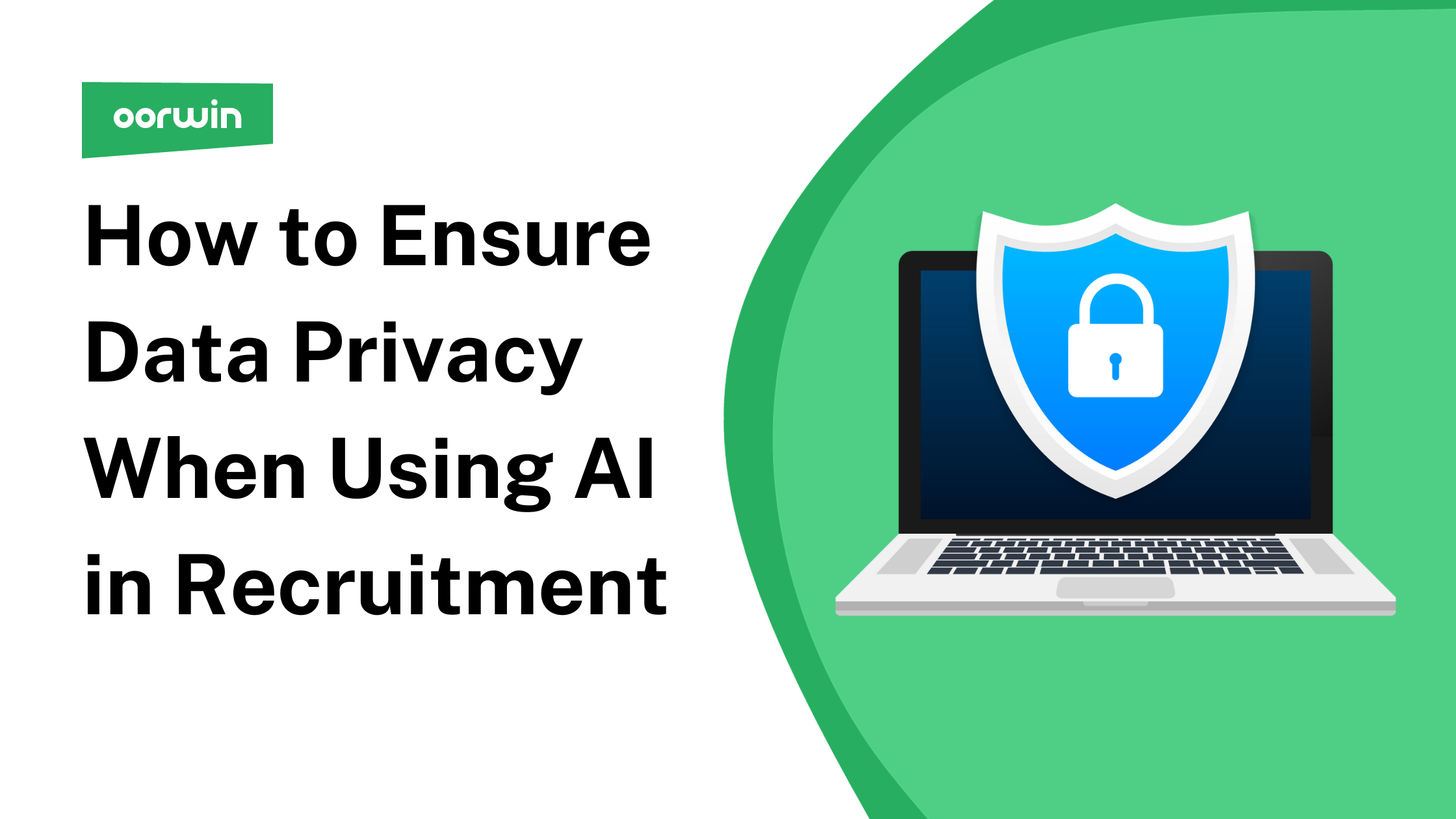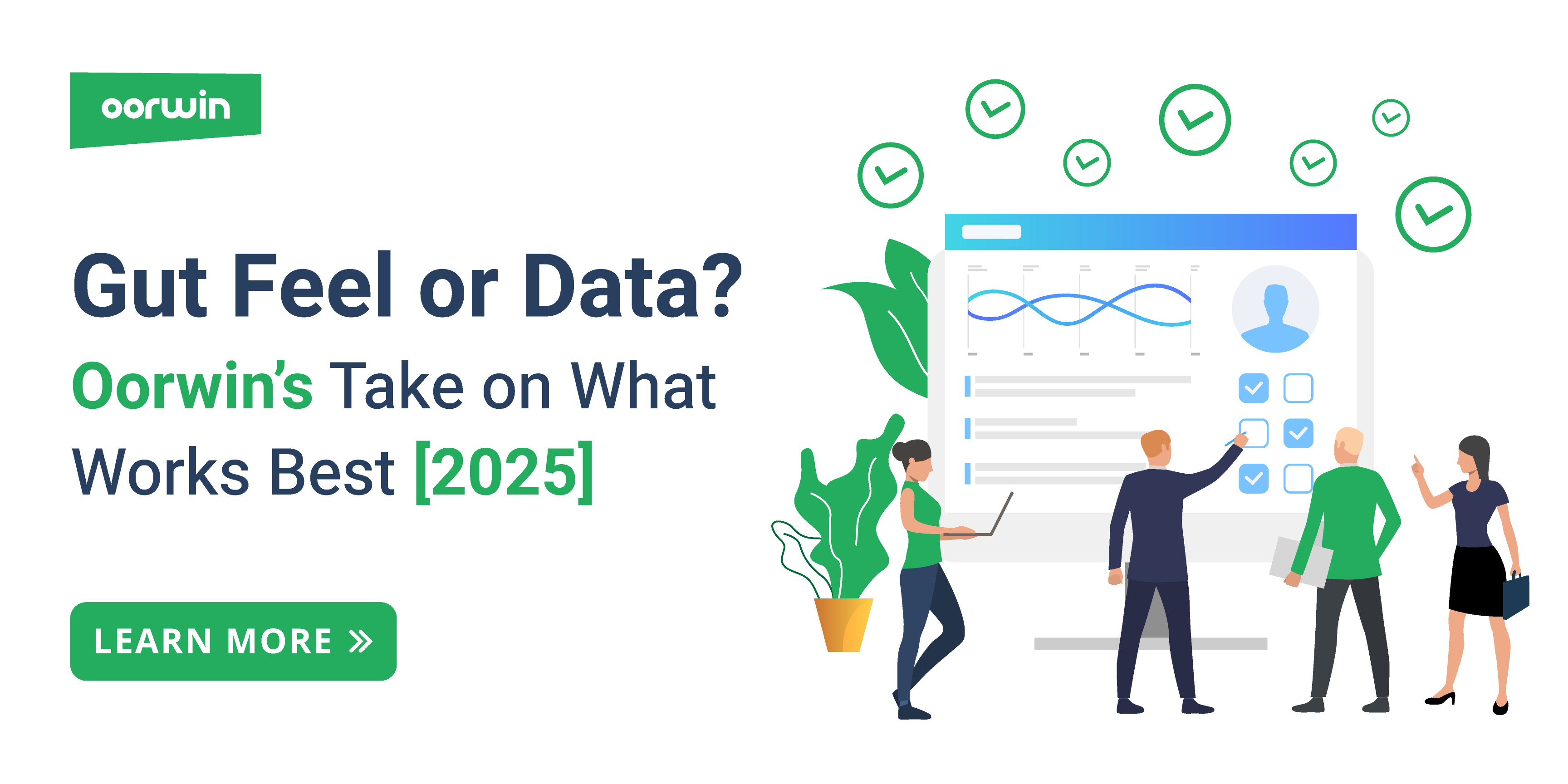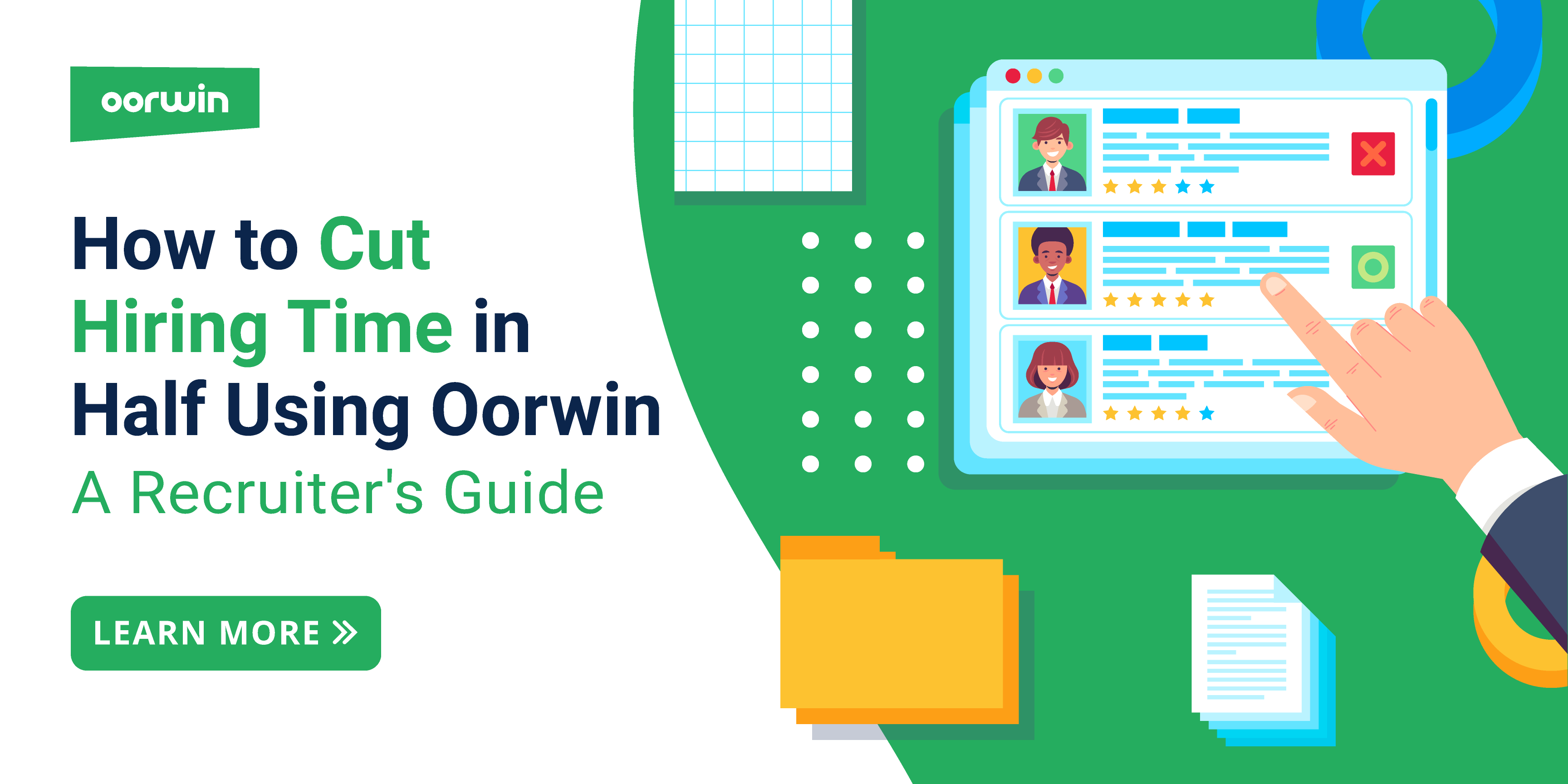Data Privacy in AI Recruitment: A Deep Dive into Practices
Oorwin
2min read / 9 Oct 2023

Related Articles
Ensuring Data Privacy When Using AI in Recruitment
In an era where technology is influencing nearly every facet of our lives, AI in recruitment stands out as a transformative force. From screening resumes to predictive hiring, AI-powered tools are reshaping the way organizations hire. However, with great power comes great responsibility. As AI becomes an integral part of candidate recruitment, concerns about data privacy, potential biases, and ethical dilemmas arise. This article delves deep into the realm of AI in hiring, outlining its benefits, pitfalls, and best practices for ensuring data privacy.
Understanding the Landscape of AI-powered Candidate Recruitment
The modern-day recruitment process is a blend of traditional human judgment and sophisticated AI algorithms. AI in recruitment provides a competitive edge, allowing firms to source candidates more efficiently, make informed decisions, and ensure seamless communication. However, it’s imperative to understand the intricacies of this technology to harness its potential while ensuring AI privacy.
The Bright Side of AI in Recruitment
AI in recruitment heralds a new era of efficiency and precision. By automating mundane tasks, AI tools expedite the hiring process and reduce human error. They can sift through vast pools of applications to find the most suitable candidates, predict future hiring needs, and even engage applicants in real-time through chatbots. Furthermore, with the global reach of AI, companies have access to a diverse and vast talent pool. In essence, AI promises smarter, faster, and more inclusive hiring.
1. Enhancing Efficiency through AI Recruiting
Automated screening and shortlisting of candidates reduce manual workload, making the recruitment process faster and more efficient.
2. Smart, Predictive Hiring: Leveraging Data with AI
Predictive analytics in AI in hiring allows recruiters to forecast hiring needs, understand job market trends, and identify the best-fit candidates.
3. Streamlined Communication: AI’s Impact on Candidate Engagement
Chat bots and automated communication tools ensure timely engagement with candidates, enhancing the candidate experience.
4. Global Talent Acquisition: Expanding Reach with AI
AI tools can help in talent acquisition by sourcing candidates from around the globe, ensuring a diverse talent pool and broadening the scope of recruitment.
The Pitfalls of AI in Recruitment
While AI offers transformative potential, it’s not without its challenges. One of the most pressing concerns is data privacy. As AI systems collect and process vast amounts of candidate data, there’s an inherent risk of breaches or misuse. Moreover, algorithms, if not trained properly, can perpetuate biases, leading to unfair hiring practices. Ethical dilemmas also arise, particularly when it comes to the balance between automated decision-making and human judgment. It’s crucial for recruiters to be aware of these pitfalls and approach AI in hiring with caution.
1. Addressing Privacy Concerns in AI-enabled Recruitment
As more data is collected, concerns about AI privacy escalate. Protecting candidate data becomes paramount.
2. Unveiling Potential Biases: The Shadow Side of AI
Algorithms can inadvertently perpetuate biases present in the training data, leading to unfair candidate recruitment practices. Hence it is imperative that we keep on feeding data to improve the outcomes.
3. Ethical Dilemmas: Navigating AI’s Grey Areas
Determining the boundaries of AI in hiring can pose ethical challenges, especially when it comes to decision-making autonomy.
4. Data Security Risks: Protecting Sensitive Information
Ensuring data security is crucial, as breaches can jeopardize both candidates’ privacy and a company’s reputation.
The Fundamentals of Data Privacy in AI Recruitment
Data privacy in AI recruitment revolves around three core principles: consent, transparency, and security. Candidates must be informed about how their data will be used and must give explicit permission for its use. Organizations must be transparent about their AI processes, ensuring candidates understand the role of AI in their recruitment journey. And, of course, the data itself must be protected using state-of-the-art security measures, including encryption, to prevent unauthorized access and breaches.
- Consent and Transparency: Building Trust
It’s essential to obtain explicit consent from candidates and maintain transparency about how their data will be used.
2. Data Minimization: Collecting What’s Necessary
Collect only the data that’s essential for the hiring process, ensuring AI privacy and reducing potential risks.
3. The Role of Encryption in Safeguarding Data
Encryption techniques can prevent unauthorized access, keeping sensitive candidate recruitment data safe.
Best Practices for Ensuring Privacy in AI Recruitment
Ensuring privacy in AI recruitment begins with selecting the right tools—those designed with data protection in mind. Regular audits and monitoring are crucial to ensure continuous compliance with privacy norms. Moreover, stakeholders, from HR professionals to candidates, should be educated about data privacy norms. This not only fosters trust but also promotes a culture of data responsibility and transparency.
1. Selecting Privacy-Preserving AI Tools
Choose AI recruiting tools designed with robust data protection mechanisms. Prioritize solutions that adhere to global privacy standards, ensuring both compliance and candidate trust.
2. Continuous Monitoring for Compliance
It’s not enough to set and forget. Regularly audit your AI recruiting tools, ensuring they remain compliant with ever-evolving data privacy regulations and best practices.
3. Educating Stakeholders on Data Privacy Norms
Equip HR professionals and stakeholders with knowledge on AI privacy. By understanding its importance, they can champion safe and ethical recruitment practices.
Responsibly Harnessing AI in Recruitment: Stepping into the Future
The future of recruitment lies in responsibly integrating AI. This means creating a framework where AI tools complement human decision-making without overshadowing it. As we step into this future, it’s paramount to adapt to evolving norms of privacy, ensuring that candidates always remain at the center of the recruitment process. By prioritizing informed consent and continuous learning, organizations can navigate the challenges and truly harness the power of AI in hiring.
1. Establishing a Balanced AI Recruitment Framework
A balanced approach ensures that AI tools enhance the recruitment process without compromising on ethics or privacy.
2. Evolving with AI: Adapting to New Norms of Privacy
As AI technology advances, so should our understanding and implementation of AI privacy measures.
3. Informed Consent: Ensuring Candidate Awareness
Always ensure that candidates are fully aware of how their data will be used in the AI in the hiring process.
The Road Ahead to AI Recruiting
The future of AI in recruitment is promising, with the potential to revolutionize hiring practices. However, as we integrate these tools, it’s vital to prioritize AI privacy and ensure ethical candidate recruitment. By staying informed, adopting best practices, and continuously evolving with technology, we can navigate the challenges and harness the immense potential of AI in hiring.
FAQs
1. How do you ensure data privacy in AI?
To ensure data privacy in AI, it’s vital to adopt practices such as data minimization, collecting only essential data, and using encryption for data storage. Gaining explicit user consent, adhering to privacy regulations, and continuously auditing AI systems for compliance further bolster data protection efforts.
2. How does AI impact data privacy in recruitment?
AI amplifies data privacy concerns in recruitment due to its ability to process vast amounts of personal data quickly. While it can streamline hiring, there’s also a risk of data breaches, misuse, or unintended biases in automated decisions. Ensuring transparency and robust security measures becomes paramount.
3. What are the benefits of using AI in recruitment?
AI in recruitment offers numerous benefits. It enhances efficiency by automating mundane tasks, provides insights through predictive analytics, and ensures consistent candidate engagement via chatbots. Additionally, AI tools can sift through vast applicant pools, ensuring a more comprehensive and unbiased candidate selection.
Popular Articles..
Blog

8min read / 25-Jun-2025
Master Effective Interview Techniques with Oorwin: A Step-by-Step Recruiter’s Guide
Blog
Blog
Get the latest Oorwin releases, updates, success stories & industry news
 Back
Back
